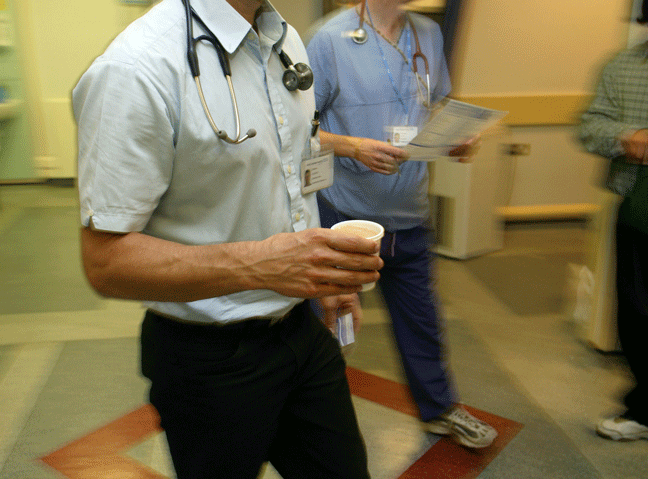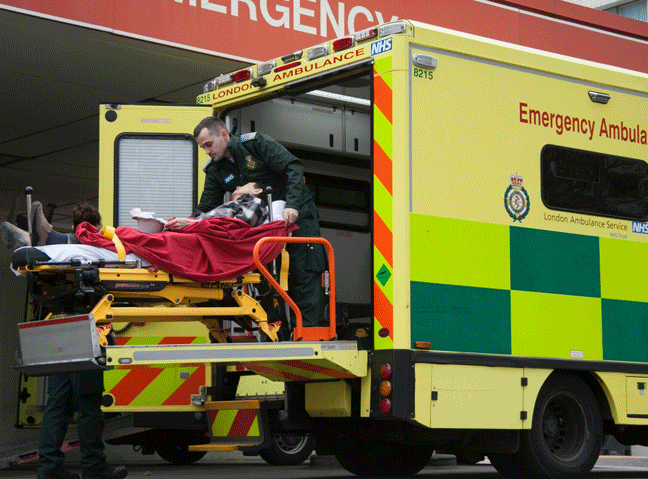NHS ‘Talk Before You Walk' Policy Could See Patients Without A Referral Banned From A&E

A health official has warned that patients could be turned away from A&E unless they have been referred by their GP or the 111 service.
The policy, which has been coined 'talk before you walk', would see patients who arrive at A&E without first seeking other medical advice, turned away.
Speaking at a conference in Birmingham, national medical advisor for integrated urgent care at NHS England, Dr Helen Thomas said that if the policy received political backing a pilot scheme could be set up.
She explianed, "Jeremy Hunt has mentioned to some of my colleagues, maybe we should have a 'talk before you walk' and we may well pilot that.I think it's been done in other countries where they've actually said you can't come to the emergency department until you've talked on referral or you have to have that sort of docket that you're given by having talked down the phone and being told you should come in."
Thomas said that only 20 per cent of walk-in patients called 111 before going to A&E. Of the 80 per cent that did not, she said ‘an awful lot' wouldn't have needed the care and attention of an A&E department.

While a ‘talk before you walk' policy could alleviate some of the strain on A&E departments, some have warned that it is too risky, while others have dismissed it as counterproductive.
Prof Helen Stokes-Lampard, chairwoman of the Royal College of GPs, told the Guardian,"Pressures in the NHS are not restricted to emergency departments - intense workload and workforce issues are being faced in general practice too, and this would simply create further capacity problems, and increase bureaucracy for a profession already drowning in it.
Sign up to our free daily email for the latest royal and entertainment news, interesting opinion, expert advice on styling and beauty trends, and no-nonsense guides to the health and wellness questions you want answered.
"We know that the main issue contributing to pressures in A&E is not inappropriate attendance, but a lack of hospital beds, and a lack of the community support services patients need when they are discharged, so they end up staying in hospital for longer than they needed to."

A spokesperson for NHS England also said that it was highly unlikely a pilot, let alone the full scheme would ever go ahead.
They said, "It is wrong to suggest or imply that the NHS will do anything other than continue to provide A&E care for all patients who need it, nor are there any plans to prevent patients from visiting A&Es alongside the other options now available for non-urgent care, such as NHS 111 or urgent treatment centres."
A Department of Health spokesperson also said, "There are absolutely no plans to pilot this approach - patients can be reassured that unprecedented planning has gone into preparing the NHS for this winter, supported by an extra £100m for A&E departments and £2bn for the social care system."
What do you think of the policy suggestion? Should patients have to seek prior approval before heading to A&E? Let us know in the comments section below or join the conversation on our Facebook page.
Jessica is a Senior Food Writer at Future and is an enthusiastic, self-taught cook who adores eating out and sharing great food and drink with friends and family. She has completed the Level 1 Associate course at the Academy of Cheese and is continually building on her knowledge of beers, wines and spirits. Jessica writes food and drink related news stories and features, curates product pages, tests and reviews equipment and also develops recipes which she styles on food shoots.
